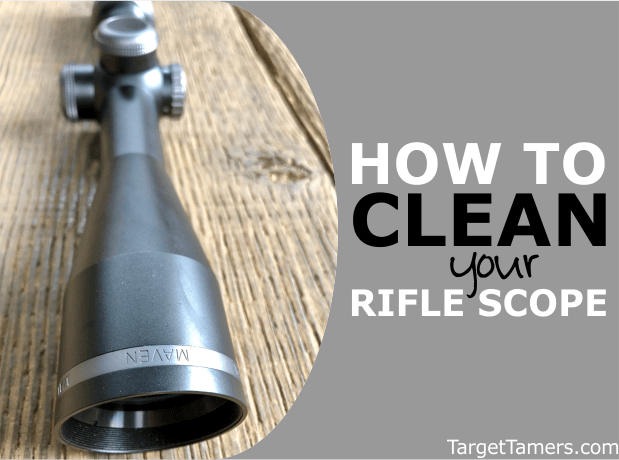
Sport optics lenses have come a long way since the days of yore. Special lens coatings are made to be permanent and abrasion-resistant, of course with limitations.
Additional coatings can make water bead up allowing you untainted image quality even in a downpour.
When it comes to scope lens cleaning, there's no denying that dried-up specks of mud, fingerprint smudges, and even gun-cleaning solvents and powders can wreak havoc on your image quality, scope durability, and your sanity.
To avoid having your rifle scope lens look like your car windshield, here's the right and wrong way to clean it! We also recommend some rifle scope lens cleaning kit options.
Why Clean a Rifle Scope?
Your rifle scope has most likely been constructed with the toughest chassis, most durable scratch-proof coatings, and it probably came equipped with lens caps - everything you need to brave the wilderness.
During your expedition, you'll likely expose the lenses to contaminants that you won't want staying on there for long. Dust and debris won't damage your lenses, it's the stupid things you do in a hurry that will. That's why there's a right way to clean 'em and a wrong way too. Here's all the "do not" do's when you're tempted!
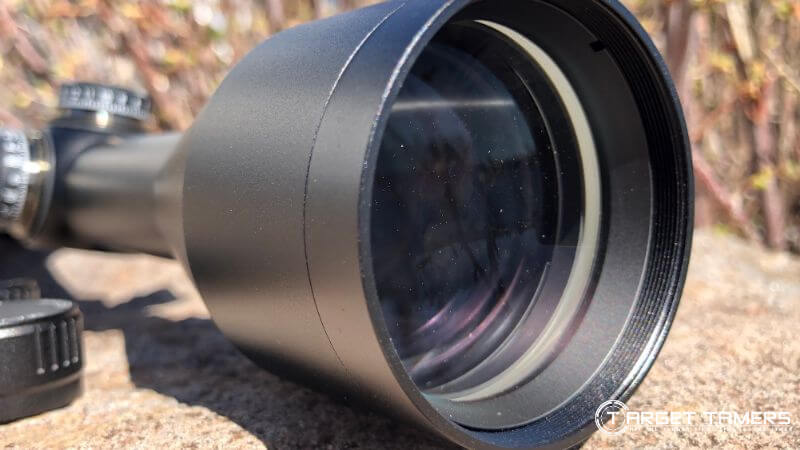
Don't use your shirt tails to wipe the lenses. It's not designed for lenses, and it contains abrasives that will scratch your coatings.
Don't use your snotty handkerchief. Gross - you don't know what additional microbes you're adding to the glass as you're only guaranteeing a more thorough cleaning will be needed.
Don't use your sleeve to wipe off condensation. A little prep work will save you in this department.
Don't spray cleaners directly on the lenses. You can damage the seals on your scope over time.
This list isn't the be-all, end-all of stupid things we do when we're desperate. But, it gives you an idea of what not do to when the occasion arises.
Preventative Care: Use Lens Caps
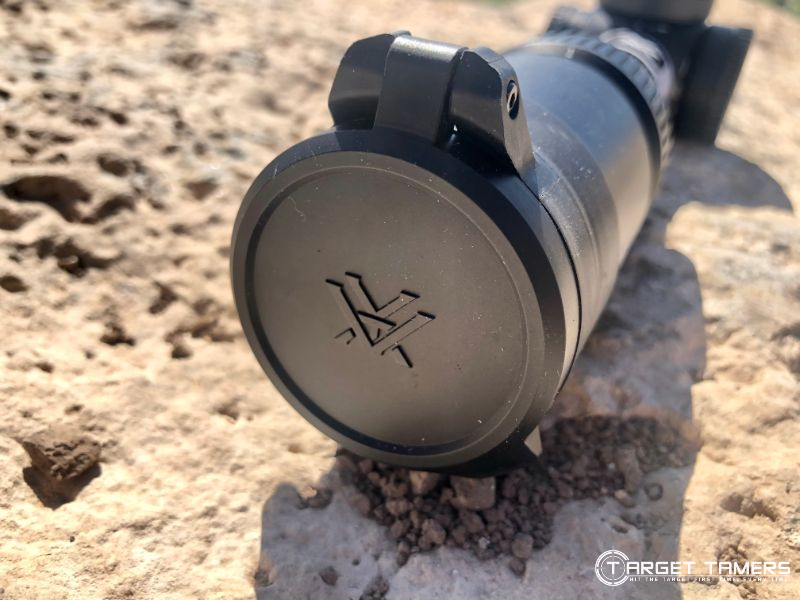
This is common sense. Keep your caps on when you're not using your scope. This applies for during storage, gun cleaning, and even for field use. Exposed glass can be damaged trudging through timber when twigs, branches, and the like come into contact with the glass-to-air lenses, when you're innocently passing through brush or pulling your scope up off the ground.
When cleaning your rifle, keep your caps on. Many gun cleaning solvents and powders can do irreparable damage even if you wipe it off the lenses right away. Those tiny, microscopic droplets and fibers can do a ton of damage over time rendering your scope useless - boo! Keeping your caps on will go a long way!
Our suggestions:
- Butler Creek Flip-Open Scope Cover
- Vortex Optics Flip Cap Optic Cover
- Monstrum Tactical Rubberized Flip-Up Rifle Scope Lens Covers
Dusting: No Longer a Household Only Chore
You might be tempted to give your scope a dust-down every single time before heading out on the road. Word of advice: don't. It's a sure-fire way to develop some bad habits. If it's just dust and a little dirt, let it be until you start seeing some accumulation on the lenses. You don't want build-up to be the cause of moisture-absorbent damage, even if your scope is sealed against moisture. So, what to do? Dusting is always the first step in cleaning your rifle scope.
- Give a little blow on the lenses with the optic facing downwards to allow dust to fall off.
- Acquire a lens pen, lens brush, or other similar soft-bristled brush.
- Ensure dusting tool is clean of debris and oil.
- Lightly brush the lenses to allow debris to fall to the floor.
- If using a lens pen, retract the brush to allow for a tighter bristle group to loosen up tough buildup spots.
Our Suggestions:
Polishing
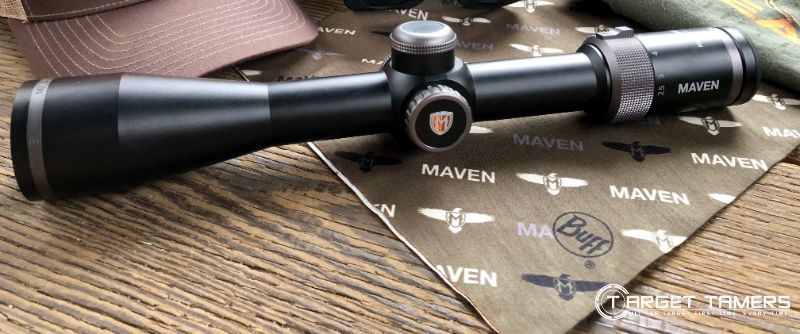
After a thorough dusting of all loose particles of dust and dirt, you might be ready to take your cleaning prowess to a whole new level - polishing. Sometimes just a quick brush isn't enough to get rid of eyelash oil smears, fingerprint smudges, dried water spots, and all those nuisances that require a little more elbow grease. Without elbow effort, you can still get rid of those nasty blemishes.
A lens pen that you can use for dusting can also double as the polishing tool. Additionally, a lens pen typically has a non-liquid cleaning compound that can usually take care of these tough-to-clean spots. On the opposite end of the dusting brush is a microfiber chamois pad that can get into the nooks, crannies, and grooves of where the lens meets the scope housing.
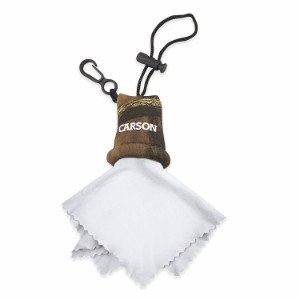
You can also use the microfiber cleaning cloths that can included with the purchase of your rifle scope. They're reusable, last a long time, are effective and safe on coated lenses. You could also wrap a q-tip with the cloth to help get into the tight spots for cleaning. Specially-designed microfiber cloths for lenses capture and pull up oily residue and microscopic debris from the lenses.
- Ensure your tool of choice is clean of debris.
- Use in circular motions to wipe away smears and the like.
Our Suggestions:
Liquid Cleaners
Rarely will you need a chemical cleaner to get the job done. Between the lens pens, brushes, and cloths, you're usually good to go. A little bit of pure water can help with stubborn stains, but when you have to deal with tree sap, blood, and powder blow-back, you might need something a little tougher.
A lens cleaner solution and even an anti-fog cleaning solution can do wonders for those stubborn boogers. Also, an anti-fog solution can also prevent condensation from when you have extreme climate changes or when you're emitting heat from your face to your optic. Here's a few tips you should know before you spray and wipe.
- Never use Windex! A house window is not the same as a coated lens.
- Never spray directly onto the optic lenses to prevent damage to the seals.
- Always spray directly onto the cleaning applicator like a Kleenex tissue (without additives) or q-tip for application.
- Quick drying solutions may leave streaks.
Our Suggestions:
Turret Care
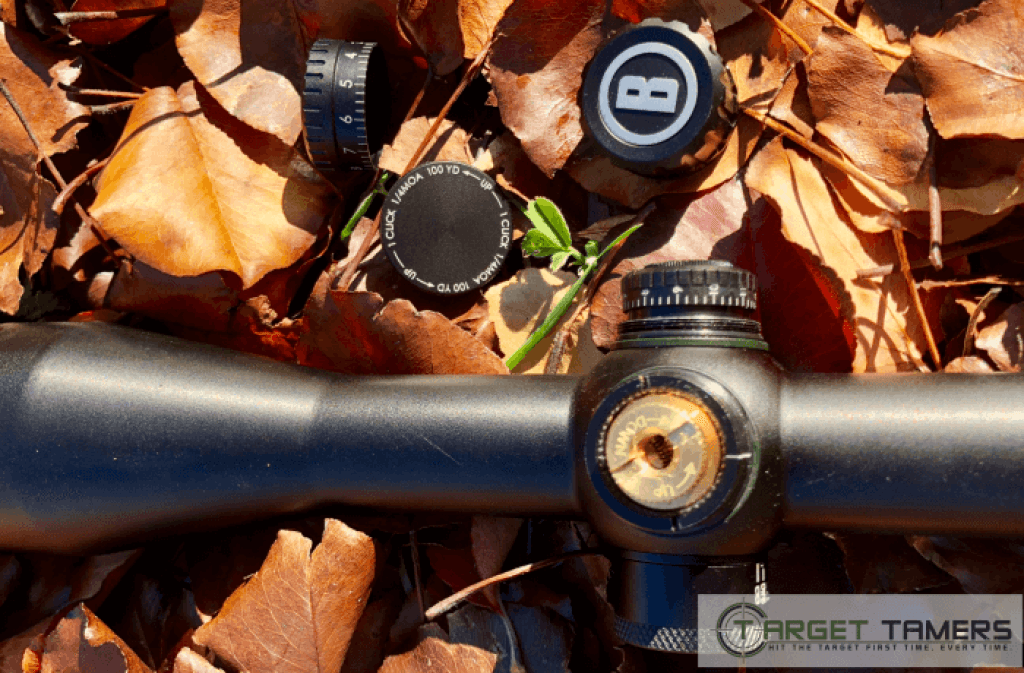
It's easy to forget about taking care of your turrets. If you live in cold country, then you know your turrets can be susceptible to condensation and rust. After a hunt, remove your turret caps to let them air out then dust them down the same way you dusted your lenses to remove dirt and debris. Be careful not to brush debris into the rotating parts of the turret mechanisms.
If you're having trouble with the turret threads not moving as smoothly as you'd like, a cleaning and a wax may be in order. You may want to use isopropyl alcohol applied to a q-tip to clean out any debris from the threads. Follow up with a very thin layer of wax to lubricate the threads and protect from corrosion and oxidation. The wax is an option if you're not fooling around with your turrets a lot. However, if you're in dusty territory and your extreme long range turrets see some action, the wax can attract dirt. A simple cleaning is your best option.
Our Suggestions:
Don't Get Too Crazy!
Less really is more. Don't clean your optics more than you have to. Of course you want to keep your scope lenses as clean as possible, but you don't have to overdo it. Each time you clean the lenses, especially doing it incorrectly, you can cause even microscopic damage that can add up over the years causing decreased light transmittance, performance, and lens durability.
There's no need to become obsessive over cleaning your rifle scope, it's made for the outdoors. However, with proper care, it should last you a lifetime!
Further Reading



